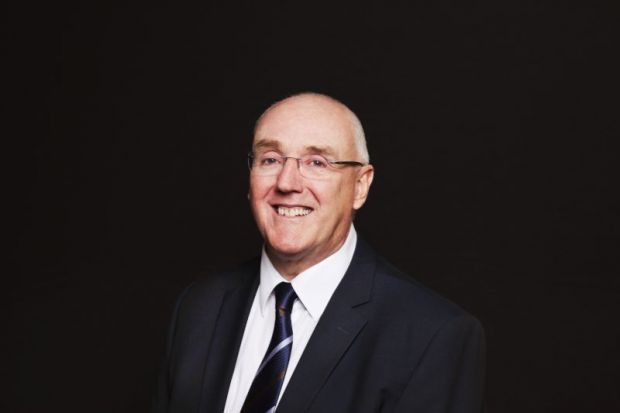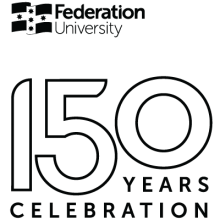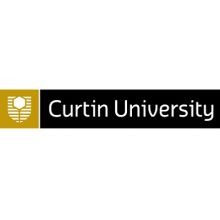Australian university leaders are sometimes derided as “property developers with a side-hustle in education”. Barney Glover, who has tackled more property development than most vice-chancellors, acknowledges the criticism.
“If you explore new ways of finding the money to build new buildings in a way that’s sustainable, it is challenging,” concedes the Western Sydney University (WSU) boss. “Some people will look at that and say: ‘That’s not a model that I’m comfortable with. That’s very different to owning your own land and finding money from government or philanthropy to build the buildings – the way university infrastructure has been funded almost for centuries’.”
WSU is a pioneer, and one of the most ambitious exponents, of a trend of newer Australian universities trading their sprawling suburban landholdings for vertical campuses in city centres and transport hubs.
A series of complex deals will ultimately see WSU leasing new high-rise campuses in three busy population magnets – the suburban hubs of Parramatta, Liverpool and Bankstown – and co-developing research, innovation and education precincts in three thriving industrial zones.
To finance all this, the university has sold, redeveloped or reconsidered the future of seven sites scattered across the vast Cumberland Plains of Sydney’s west.
It is a new look and a new persona for a university pieced together from a 130-year-old agricultural school and four teacher’s colleges dotted around Sydney’s leafy suburban fringe. Glover says WSU did not have much choice, as it looked for ways to bankroll the “digital student and academic experience of the future”.
He says the latest addition to the network, the Bankstown campus, will embed “state-of-the-art teaching and research capability” in a A$400 million (£229 million) building. “No government is going to give us A$400 million to build buildings,” he says.
“If you want to provide the generations of people in western Sydney with the best possible higher education experience, then you have got to find new ways to fund that.”
WSU’s approach of working with developers and co-locating with industry partners is “predicated on growth in higher ed over the next decade”, he acknowledges. And while the underpinning logic – finding commercial returns from “under-utilised” land – works for universities with scope to rearrange their capital city estates, it is much harder for institutions in regional centres where land is not at such a premium.
But the model “works for us”, Glover insists. “It’s been able to provide us with a significant endowment that will build over the course of the next five years.”
Far from diverting the university from its focus on sustainability, he says, the rationalisation of campuses has improved its environmental performance. “We’re significantly lessening our footprint [from] the historic buildings we’ve had, with all their embedded energy.”
The institution now occupies far less land with lower energy costs per square metre. WSU is targeting top Green Star ratings for its new campuses, which are fuelled by renewable power and designed with other environmental and social factors in mind. The buildings are pandemic-ready, with touch toilets and ventilation systems that minimise the transmission of pathogens. “If you can’t demonstrate that, you can’t hope to attract tenants to co-locate with you,” Glover observes.
While such features reflect 2020s’ preoccupations, he says sustainability is a longstanding hallmark of the university. Its roots in agriculture and forestry led naturally to a focus on environmental sustainability towards the end of last century. And the mergers with colleges of advanced education added a focus on universally important professions like teaching, nursing and healthcare.
“The university was very focused, as it needed to be, on its community. A university with a community mission – a university that sees itself as an anchor in its region – will always appreciate and recognise the importance of sustainability because it’s in every conversation, whether you use that phrase or not.
“At the community level it’s about the environment, it’s about ecosystems, it’s about social and educational disadvantage and how a university can help to address that. It’s about social mobility. It’s about economic uplift. Public good research related to the breadth of sustainability was something that seemed a natural fit for this university, in this region, in this part of multicultural Australia.”
With sustainability entrenched in WSU’s teaching and its “very focused research agenda”, the arrival of Times Higher Education’s Impact Rankings – which gauges universities’ contributions towards the United Nations’ 17 sustainable development goals (SDGs) – offered an opportunity “to see how we compared on the world stage”.
Quite well, it turned out, according to THE’s methodology. WSU notched a very creditable 11th in the world in the ranking’s first outing in 2019, rising to 3rd in 2020. After dropping to 17th overall in 2021 it rebounded to first place this year.
Glover says WSU’s high showing in the ranking’s first iteration took the university’s leaders by surprise. While they felt they had a “compelling narrative around our commitment”, they lacked comparators. That changed with the Impact Ranking.
“What we were doing was not only resonating locally but it was comparatively an important contribution to bring more broadly. One of the most important things about the Impact Rankings, more so than the others, is that we can learn from each other. Our partners around the world have reached out and said, ‘we’d love to know how you did it’.”
He says universities are exercised by the SDGs as “something that’s crucially important to the planet. The clock is ticking to 2030.” Young people want their institutions to get involved, he adds. “It’s got to be more than rhetoric and narrative and marketing. It’s got to be the reality on the ground: what are you actually doing to live up to that rhetoric?
“Increasingly, many students – particularly international students – want to be associated with a university that’s committed to the planet in the same way they are. I think it resonates in a way that perhaps other rankings systems don’t.”
The Impact Rankings naturally appeal to younger universities that are building international research profiles. But more established institutions need to “lift their game”, Glover warns.
Rankings draw mixed views, and the Impact Rankings are no exception. One view is that universities’ core business is to produce and transmit knowledge, and their efforts should be measured and rated against these activities. Sustainability and other social-good impacts are the natural flow-on of universities doing their job well.
This reflects a broader argument that high rankings are a product of – not a reason for – universities pursuing their missions. But Glover says the world’s “very prestigious universities” are not as well represented in the Impact Rankings as they should be, with many failing to submit material for assessment.
“I’m sure that in each and every one of those prestigious universities, deep research relevant to sustainability is underway. I would challenge them to consider making it known to the world what they’re doing through the Impact Rankings, and then we can all learn from that. If that means it’s going to be tougher to be number one next year, that’s good for everyone – including Western Sydney.”
With close to 50,000 students, WSU is a large university by world standards. Glover began his academic career as a mathematics lecturer at the much smaller Federation University, which at that stage was an affiliated college of the University of Melbourne.
“In a smaller institution, you have an opportunity to broaden your skill set, your leadership skills and your opportunities to engage with colleagues more rapidly. Because I was heavily involved in mathematics research, I picked up the very part-time role of director of research and graduate studies.”
It was a dalliance with administration that eventually moved to the fore, as he became director and subsequently pro vice-chancellor of research and development at Perth’s Curtin University. Then followed a stint as deputy vice-chancellor of the University of Newcastle before he assumed the leadership of Charles Darwin University in 2009 and WSU in 2014.
Glover says administrative experience is important for any academic with leadership ambitions. “I think a solely research-focused pathway is more and more difficult. You need to have had a variety of experiences on the way. Increasingly, we’re seeing senior management positions in Australian universities involving or demanding a broad skill set. Picking up those other skills and opportunities is important, which is why I think small universities have a great deal to offer us.”
He says the last few years have “tested” Australian higher education leaders in multiple ways. “Relationships with government have been challenging. Economic circumstances have been challenging. National higher education policy has been put under scrutiny and we’ve been subjected to pretty significant change.”
The Australian sector is recovering from the pandemic “as well as any sector in the world”, thanks partly to the leadership of senior executives, chancellors, councils and boards of trustees. “There’s a need to share more of the leadership journey we’ve all had for the next generation of leaders.
“I can’t say the next decade will be smooth sailing. It won’t be. It’s going to have remarkable challenges, some that I can’t foresee, but I don’t think we do enough to really develop our leadership of higher education. There’s more work to be done.
“I always come back to collaboration and sharing, because it’s been a feature of my career. I fundamentally believe we can do much more in higher education through our collaboration than our competition.”
Quick facts
Born: Geelong, Victoria, 1958
Academic qualifications: honours, master’s and doctoral qualifications in mathematics from the University of Melbourne, where he also obtained a diploma in education
Lives with: His wife and dog
Academic hero: Alex Rubinov. “He was a Russian Jew, born in Leningrad during the siege in the Second World War, who emerged from that carnage to have an outstanding career as an academic, mathematician and mathematical economist. He was just such a fine man, such a great mathematician, such a wonderful collaborator. He taught me so much about mathematics and the beauty of mathematics.”
This is part of our “Talking leadership” series of 50 interviews over 50 weeks with the people running the world’s top universities about how they solve common strategic issues and implement change. Follow the series here.
Register to continue
Why register?
- Registration is free and only takes a moment
- Once registered, you can read 3 articles a month
- Sign up for our newsletter
Subscribe
Or subscribe for unlimited access to:
- Unlimited access to news, views, insights & reviews
- Digital editions
- Digital access to THE’s university and college rankings analysis
Already registered or a current subscriber? Login














